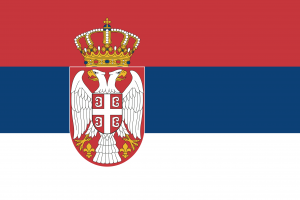Language/Serbian/Grammar/Adjectives
In today's lesson, we will be discussing the basics of Serbian grammar related to adjectives. We will cover topics such as adjective declension, comparison of adjectives, and the use of adjectives in sentences. By the end of this lesson, you should have a good understanding of how to use adjectives in Serbian.
Adjective Declension
Adjectives in Serbian are declined according to gender, number, and case. There are three genders: masculine, feminine, and neuter. There are three numbers: singular, dual, and plural. And there are seven cases: nominative, genitive, dative, accusative, vocative, locative, and instrumental.
Masculine
The masculine gender has the following endings for each case:
- Nominative: -i
- Genitive: -og
- Dative: -om
- Accusative: -og
- Vocative: -e
- Locative: -om
- Instrumental: -im
Feminine
The feminine gender has the following endings for each case:
- Nominative: -a
- Genitive: -e
- Dative: -oj
- Accusative: -u
- Vocative: -o
- Locative: -oj
- Instrumental: -om
Neuter
The neuter gender has the following endings for each case:
- Nominative: -o
- Genitive: -og
- Dative: -om
- Accusative: -o
- Vocative: -o
- Locative: -om
- Instrumental: -im
Comparison of Adjectives
Adjectives in Serbian can be compared using the comparative and superlative forms. The comparative form is used to compare two things, while the superlative form is used to compare more than two things.
Comparative Form
The comparative form is formed by adding the suffix -iji to the stem of the adjective. For example, the comparative form of the adjective "dobar" (good) is "dobriji" (better).
Superlative Form
The superlative form is formed by adding the suffix -iji to the stem of the adjective and then adding the ending -e. For example, the superlative form of the adjective "dobar" (good) is "najdobrije" (best).
Use of Adjectives in Sentences
Adjectives are used to describe nouns in Serbian. They are usually placed before the noun they are describing. For example, the sentence "On je dobar čovek" (He is a good man) uses the adjective "dobar" (good) to describe the noun "čovek" (man).
Adjectives can also be used to compare two or more nouns. For example, the sentence "On je bolji čovek od njega" (He is a better man than him) uses the comparative form of the adjective "bolji" (better) to compare the two nouns "čovek" (man) and "njega" (him).
Please feel free to edit this wiki page if you think it can be improved. 😎

